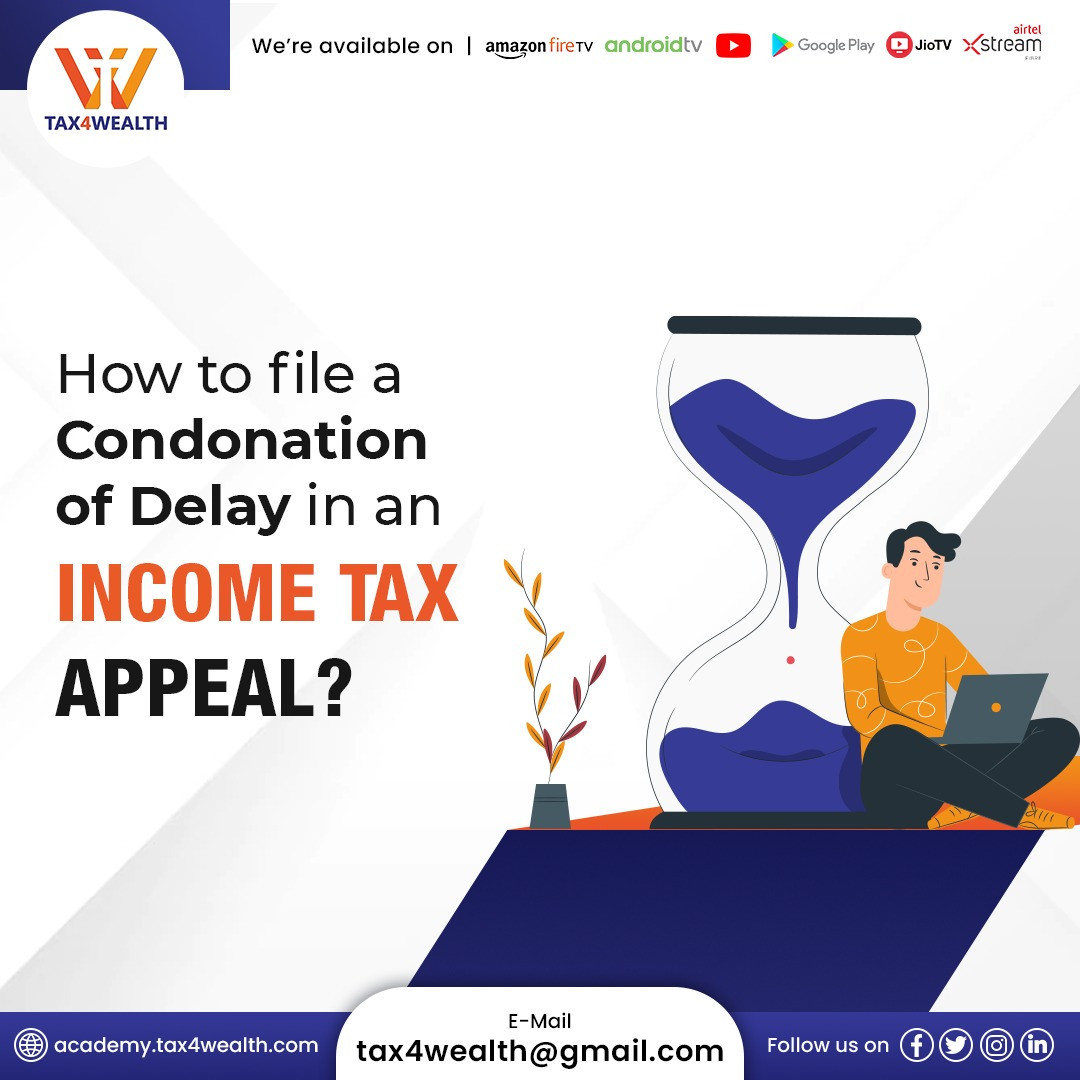
How to File a Condonation of Delay in an Income Tax Appeal?
Timely filing of income tax returns is the hallmark of a responsible citizen. But filing an income tax returns is also a complicated process. Every step of which requires vigilance. The mere filing of an income tax return does not complete the process. Verification of income tax returns is also an important step. ITR is verified electronically through Electronic Verification Code or Aadhaar Time Password. Provided that for manual verification of ITR, the income taxpayer has to send a copy of ITR v acknowledgment to CPC, Bangalore through regular, speed post or registered post within 120 days of the filing of ITR. If this verification process is not completed then the ITR is not recognized by the Income Tax Department. Due to this, you will either have to file ITR again or you will have to face related problems.
What is the condonation of delay?
In general word condonation of delay means the act of condoning the delay in filing an appeal or application by the respective authority. Condonation of delay is generally applied for the delay in filing suits in the courts in India. It is also applied if the due date of filing ITR has passed and the taxpayer wants to file those past returns.
Does Income Tax Department allow delayed claims?
If the ITR is not manually verified by the income taxpayer within 120 days, then the ITR will be considered invalid by the Income Tax Department. The hassle of filing ITR again can be avoided if the apology request is made late. Provides condonation for the delay in any application filed under section 119(2)(b) of the Income Tax Act 1961. Income Tax Department allows delayed claims. The income taxpayer must state the reason for the delay in verification.
On what grounds delay condonation request is allowed:
- If the claim is genuine and true
- Income for which tax return has been filed is not assessable in the hands of any other person
- The income taxpayer has faced real hardship.
Is there any time limit for a late pardon request?
It is also to be noted that you will not be able to file ITR until your late condonation request is accepted. No time frame has been set for the approval or rejection of the apology request. It is generally seen that such requests are completed by the Income Tax Department in three to four months.
Enhance your knowledge and skills by purchasing our income tax certification Course.
What is the Process of Condonation Request for the delay in verification of your ITR?
Step 1: Log in to the e-Filing portal using your user ID and password.
Step 2: On your Dashboard, click Services > Condonation Request.
Step 3: On the Condonation Request page, select the Delay in submission of ITR-V option and click Continue.
Note: Select Delay in the submission of ITR-V in case you have not e-Verified your ITR within 120 days of filing.
Step 4: On the Delay in submission of the ITR-V page, click Create Condonation Request.
Step 5: On the Select ITR page, select the record for which you want to raise a condonation request for a delay in ITR-V submission and click Continue.
Step 6: On the Provide reason for delay page, select the reason for your delay and click Submit.
A success message along with a Transaction ID is displayed. Please keep a note of the Transaction ID for future reference. You will also receive a confirmation message on the email ID and mobile number registered with the e-Filing portal.
What is the process of Tracking the status of condonation of request:
Step 1. Login in to your e-filing portal account
Step 2. Select the option of service request available under my account.
Step 3. Select the option of view request under request type
Step 4. Select the option of condonation request under Request Category and click submit.
Step 5. On the next screen, you will have to listen to the condonation request filed along with their current status.
What action can be taken if ITR is not filed?
A late fee of Rs 5000 will be levied under Section 234F of the Income Tax Act. If the total income of the taxpayer is less than Rs 5 lakh per annum, then this late fee will be Rs 1000.
Interest shall be charged to the income taxpayer under section 234A of the Income Tax Act at 1 percent per month or part of the month for any amount of tax outstanding.
Non-filing of tax returns within the stipulated dates also does not allow the taxpayer to claim the benefit of certain deductions.
If the tax authorities believe that the tax return has not been filed with the intention of evading tax, then such an officer can levy a penalty under section 270A of the Income Tax Act which is equivalent to 50 percent of the tax saved by the taxpayer on account of non-filing of return. Will happen.
The Income Tax Department may initiate prosecution under section 276CC of the Income Tax Act in respect of the defaulting taxpayer punishable with rigorous imprisonment for a term which may extend to a minimum of 3 months to two years, and with a fine, depending on the amount of his evasion.
Therefore, every income taxpayer should take special care of the manual verification process of ITR while filing ITR. With mere caution, you can avoid the cumbersome process of filing ITR again. Hence every income taxpayer must be vigilant and alert during the entire process of the ITR file.
Also read this blog to know more about : How to File an Income Tax Return.
No comments yet, Be the first to comment.













